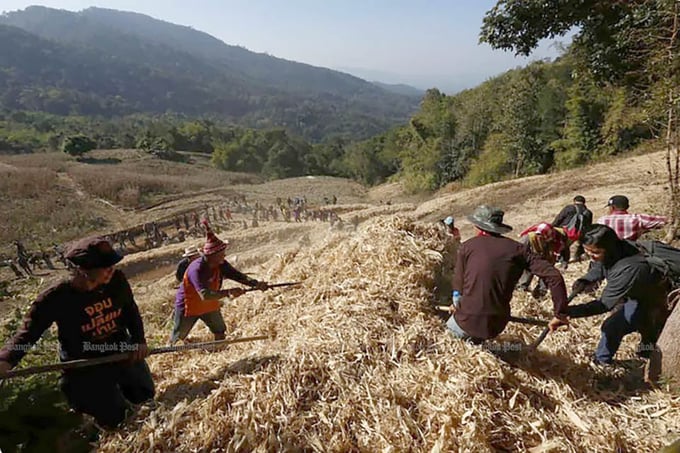November 21, 2025 | 00:17 GMT +7
November 21, 2025 | 00:17 GMT +7
Hotline: 0913.378.918
November 21, 2025 | 00:17 GMT +7
Hotline: 0913.378.918

Recognizing the economic pressures leading to agricultural waste burning, the premier made clear the need for innovative solutions and cooperation with the military to manage agricultural waste more effectively.
This action aims to reduce the annual haze crisis, which the government mainly attributes to agricultural practices in neighbouring countries such as Myanmar, Laos, and Cambodia.
Chai Wacharonke, a government spokesperson, said the cabinet has directed the Commerce Ministry to draft a regulation banning corn imports from places where field burning is a common practice, aiming to tackle the smoke-related smog that triggers annual health concerns.
Mr. Chai stated that the resolution underscored the government’s concerns regarding air pollution stemming from the burning of fields in neighbouring countries.
To prove the connection, decision-making officials plan to cross-reference corn cultivation regions with hotspot maps generated from satellite images.
The implementation of any import restrictions will be in accordance with the World Trade Organization’s regulations. Nevertheless, the enactment of these bans must await the approval of the anticipated Clean Air Act, slated for this year, he noted.
The spokesperson outlined that Thailand’s market demands approximately 8.9 million tonnes of corn each year, while its domestic production stands at around 4.9 million tonnes annually.
Presently, Thailand imports roughly 1.6 million tonnes of corn from its neighbours, which includes 600,000 to 700,000 tonnes from Myanmar, 300,000 to 400,000 tonnes from Laos, and about 100,000 tonnes from Cambodia.
An additional amount exceeding 2 million tonnes of corn is sourced from other nations, predominantly Brazil.
(Reuters)

(VAN) In a new study published in Trends in Biotechnology, researchers used a gene-editing technology called CRISPR to increase a fungus's production efficiency and cut its production-related environmental impact by as much as 61%- all without adding any foreign DNA.

(VAN) A top official in Beijing’s Cop delegation says China is committed to clean energy – but US’s absence is a problem.

(VAN) The Bangsamoro region’s inflation rate rose slightly to –1.3 percent in October 2025 from –1.5 percent in September, the Philippine Statistics Authority (PSA-BARMM) reported.

(VAN) FAO-led report says protecting and restoring forests is crucial to boosting climate-resilient agriculture, rural livelihoods and global food and water security.

(VAN) Flagship partnership secures additional GBP 16.9 million to strengthen forest monitoring, transparency and country support to 2030.

(VAN) After a turbulent year for international development, the aid and assistance landscape has shifted, with donors rethinking how, where and why they support sustainable development.

(VAN) A new tool for measuring the economic value of farm animal welfare improvements has been developed, potentially transforming how consumers, retailers and the government evaluate animal welfare policies.